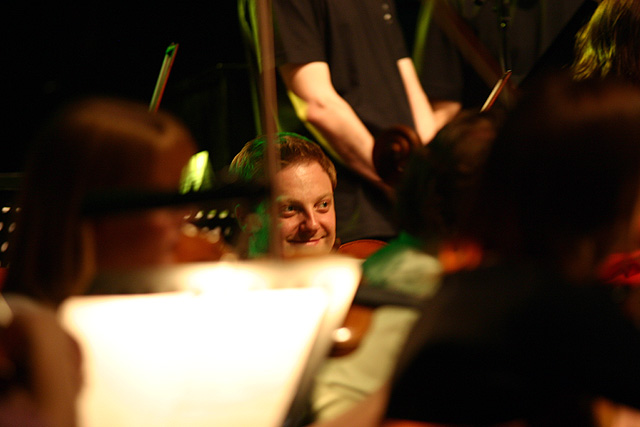Having never read any of the Potter heptalogy (gasp!), it's hard to say one way or another, though I can well imagine that, for many people, the admittance of not liking them is met with astonishment – everybody likes them. Ron Charles puts this very well:
"How do you like 'Harry Potter'?"
Of course, it's not really a question anymore, is it? In the current state of Potter mania, it's an invitation to recite the loyalty oath. And you'd better answer correctly. Start carrying on like Moaning Myrtle about the repetitive plots, the static characters, the pedestrian prose, the wit-free tone, the derivative themes, and you'll wish you had your invisibility cloak handy. Besides, from anyone who hasn't sold the 325 million copies that Rowling has, such complaints smack of Bertie Bott's beans, sour-grapes flavor.
Personally I tend to be rather sceptical of the Potters and books like them (eg. The Da Vinci Code, the works of Paulo Coelho), and find myself asking whether they are popular because they are truly good, or whether they are simply 'good' because they are popular. Can they be both?
Another argument I've often heard about Harry Potter is that if these books inspire people (especially young children) to read, then they are fulfilling a very valuable pedagogical function. However, as Charles points out, this is not always the case. The new Potter book may be the only work of fiction that many people read all year. The fact that the Potters are so hyped, not released before a given day (what is that all about?) and so on, removes the spontaneity of reading, as Charles puts it, denying readers "that increasingly rare opportunity to step out of sync with the world, to experience something intimate and private, the sense that you and an author are conspiring for a few hours to experience a place by yourselves".
 Perhaps I may yet read a Harry Potter book, just to say I've done so. I recently watched Borat, not because I particularly wanted to, but because I feel it is set to become one of the significant cultural reference points of the next few years and, as such, I ought to have seen it in order to have an opinion about it and be able to engage in fruitful debate about it. That being said, I'm quite content for Harry aka Daniel Radcliffe to continue taking on challenging, engaging roles such as that of Alan Strang in Peter Shaffer's Equus (see photo). I was very disappointed to have missed this show (for reasons both artistic and otherwise) due to not living in London, and even more disappointed to note that the production will be touring to Bath Theatre Royal (the theatre closest to my parents' house) while I will be visiting, but that, alas, Daniel is to be replaced by someone else... How late it was, how late.
Perhaps I may yet read a Harry Potter book, just to say I've done so. I recently watched Borat, not because I particularly wanted to, but because I feel it is set to become one of the significant cultural reference points of the next few years and, as such, I ought to have seen it in order to have an opinion about it and be able to engage in fruitful debate about it. That being said, I'm quite content for Harry aka Daniel Radcliffe to continue taking on challenging, engaging roles such as that of Alan Strang in Peter Shaffer's Equus (see photo). I was very disappointed to have missed this show (for reasons both artistic and otherwise) due to not living in London, and even more disappointed to note that the production will be touring to Bath Theatre Royal (the theatre closest to my parents' house) while I will be visiting, but that, alas, Daniel is to be replaced by someone else... How late it was, how late.

